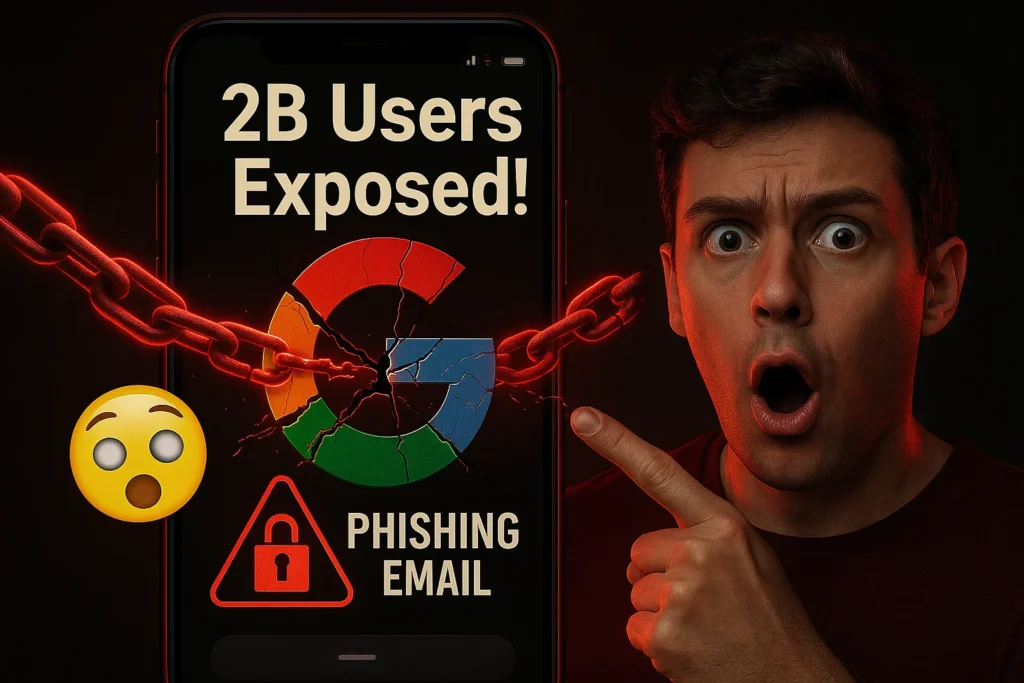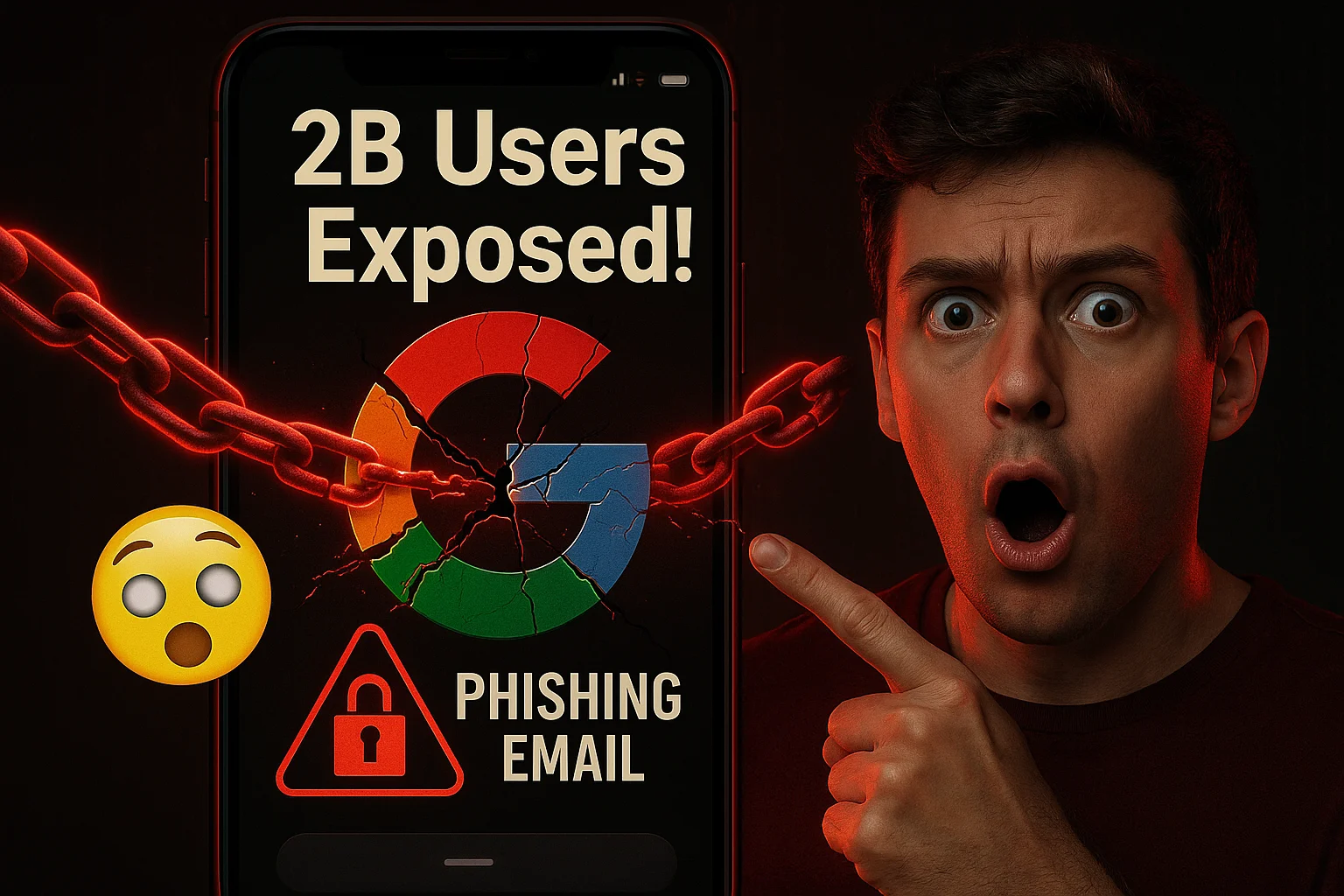How to spot scams and beef up your account security right now
What’s Actually Happening
Here’s the deal: Google recently confirmed that hackers snuck into one of its Salesforce databases through some clever social engineering tricks. They impersonated IT support and got an employee to upload malware, which let them grab basic business info like contact details and company names. No passwords got stolen, but this leak is fueling a wave of targeted phishing attacks on Gmail users.
The thing is, with over 2.5 billion people using Gmail, scammers are using that stolen data to make their fake emails and calls seem legit. It’s not a full-blown password breach, but it’s ramping up risks for everyone.

The Key Findings
According to reports, the breach hit Google’s corporate Salesforce setup, exposing data from small and medium-sized businesses. No consumer stuff like your emails or files was touched, but hackers are leveraging it for phishing and vishing— that’s voice phishing over the phone.
Google says the info was mostly public anyway, but the fallout is real: a spike in scams where fraudsters pose as Google support. Phishing now makes up 37% of successful account takeovers across Google services.
Here’s a quick breakdown in a table:
| Metric | Details | Stats/Impact |
| Users at Risk | Gmail and Workspace accounts | 2.5 billion potentially targeted for phishing |
| Data Exposed | Business contacts, company names | No passwords or payments, but enables targeted scams |
| Attack Types | Phishing emails, vishing calls (often from 650 area code) | 37% of account hacks; only 36% of users update passwords regularly |
| Google’s Fix | Terminated access, impact analysis done | No direct user action needed, but security upgrades urged |
This data comes from Google’s own statements and security analyses.
Why This Matters to You
So basically, if you’re like most folks checking email daily, this leak means scammers might know just enough about your business or contacts to make their tricks more convincing. We’ve all gotten those sketchy emails, but now they could reference real details to hook you.
The way I see it, it’s a reminder that even big tech isn’t bulletproof. It could lead to more spam calls or fake reset links landing in your inbox, putting your personal info at risk.
5 Things Worth Knowing
- The breach was social engineering at its finest – Hackers from a group called ShinyHunters tricked a Google employee over the phone, no fancy code-breaking involved. This shows how human error can open doors—keep an eye out for unsolicited calls claiming to be from Google.
- No passwords leaked, but change yours anyway – Google insists no creds were taken, but with phishing on the rise, freshening up your password reduces risks if you’ve reused it elsewhere. Only 36% of people do this regularly, so don’t be in the majority here.
- Phishing is getting smarter – Scammers are sending “suspicious sign-in” alerts or calling from the 650 area code, pretending to help with security issues. They’ve even manipulated Google’s AI to back up their lies—always verify through official channels.
- Two-factor is your best buddy – Switch to an app-based 2FA instead of SMS, as texts can be intercepted. And consider passkeys for passwordless logins—they’re harder for hackers to crack.
- Check your account activity – Head to your Google security settings to review logins and devices. If something looks off, act fast to secure your recovery options.
The Real Impact
This isn’t the end of the world for Google users, but it’s a solid nudge to tighten up security habits. The honest assessment? While the leaked data is limited, it’s enough to supercharge scams, leading to potential identity theft or account lockouts for those who fall for it.
On the flip side, it highlights ongoing privacy concerns with big tech handling so much data. Breaches like this happen, but acknowledging them helps us all stay safer without panicking.
Bottom Line
Here’s what’s interesting: This Google data leak is more about vigilance than a total meltdown. Update your password, turn on better 2FA, and ignore those random “Google support” calls. Staying proactive keeps you ahead of the curve.
Further Reading
- Fox News on the phishing surge after the leak
- Forbes explains why most Gmail users should change passwords
- Proton Blog details the breach and privacy alternatives
- NY Post warns about hacker intrusions
- Trend Micro on protecting your ID post-breach
- PC World guide to staying safe from the hack
- Tom’s Guide on what you need to know
Key Takeaways
- Update your Gmail password if it’s been a while, and use a manager to generate strong ones.
- Enable app-based 2FA and explore passkeys for extra protection.
- Never click links in unsolicited emails—go directly to accounts.google.com.
- Watch for calls from the 650 area code; Google won’t cold-call you about security.
- Regularly check your account’s security page for unusual activity.
- Consider privacy-focused email alternatives if you’re worried about big tech breaches.

